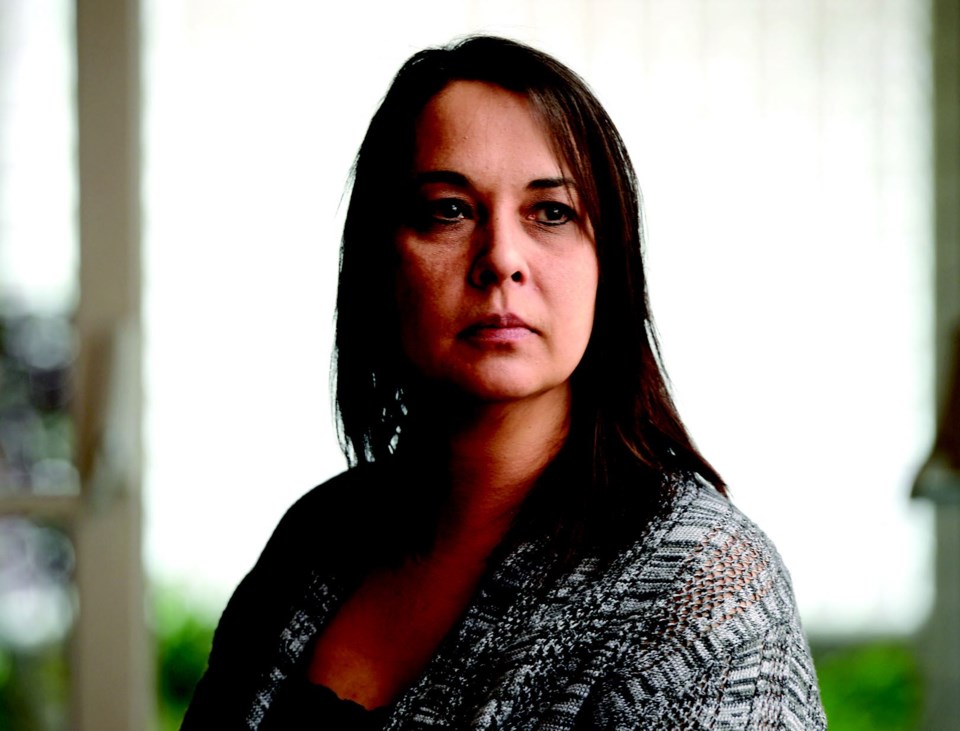The coroners inquest into the April 2012 Lakeland Mills explosion began Monday with testimony from the widows of the two men who died in the blaze.
Joanna Burrows described Alan Little as an intelligent man who likes to read and write poetry and was a good listener.
"I had an assumption of what a mill worker would be like and I was surprised as the complexity of his personality," Burrows said.
During roughly the year leading up to the day, she said he became more stressed and tired as management put more emphasis on productivity, suffering chest pains and grinding his teeth. Burrows said she also noticed sawdust in his hair when he came home.
"It looked like he had snowdrifts in his hair," Burrows said.
Concerns heightened after what turned out to be a similar and fatal explosion at Babine Forest Products, near Burns Lake, three months before, particularly because a fire had broken out at Lakeland the day before the incident at Babine.
Burrows said she encouraged Little to see a counsellor about stress management.
Burrows said he once told her he wished he had never been in a supervisorry position and about two weeks before won a transfer to a new position out in the yard. But on the night of the explosion, he happened to be in the mill itself.
"It never crossed my mind to think it was actually as bad as he said," Burrows said, tearing up, and added that despite Little's words, the explosion surprised her, although when she looked back on what he said, it should not have been.
Glenn Roche was described by wife Ronda Roche as intelligent and meticulous who had high standards, constantly striving to beat production levels from the day before. But, like Little, he became concerned following the fire at Lakeland and the explosion at Babine the next day - saying the fire at Lakeland was not just a regular fire but that "the air in front of him was on fire."
Roche said her husband predicted an explosion like Babine's will erupt at Lakeland and that he might be among those killed.
"I wished he was wrong," Roche said.
Roche said her husband raised his concerns with supervisors whenever they came by his work station to talk to him.
The worrying trend of dust and the fire at Lakeland the day before the Babine explosion remained topics when Brian Primrose took the stand.
Primrose who operated the small headrig, which breaks down the small logs, said that as Lakeland switched from the fresh pine it used to process to the long-dead and dried pine it began to work through as the mountain pine beetle took hold, the dust was no longer moist but rather like "dirty yellow flour."
He said small fires caused by sparks igniting sawdust or wood were common in the operation but with the drier dust, "the severity of the fires was increasing" although not necessarily the frequency.
He said two fires broke out in the days before the explosion at Babine, one on Jan. 17, 2012 when a motor near a band saw blew up and was extinguished by himself and Roche, who was operating the adjcacent large headrig and then on Jan. 19, 2012 when sparks, apparently caused by a saw deviating into a cut, flew down and onto the sawdust below.
But this time, he said what started as a small fire got into the dust in the air and he heard a "popping or a banging sound."
"It was really quite frightening," Primrose said.
Although they thought of running away, they instead turned their extinguishers on the fire while co-worked rained fire retardent on them from above.
When Babine exploded the next day, "we knew how it happened."
Primrose said he suffered chest pains upon learning the news and called Roche at home - they were both off after finishing their four 10-hour shifts for the work week. He said neither of them wanted to go back to work on Monday morning.
But they did return to work and Primrose said there was even more dust in the mill than when he'd left. That prompted him to take two photos, one of a chain guard covered in dust, which Primrose seemed to stick to everything, and the other of the motor that had replaced the one that blew up, which was also covered in dust.
The inquest before a jury of seven men is expected to hear from 47 witnesses over two-and-a-half weeks.



